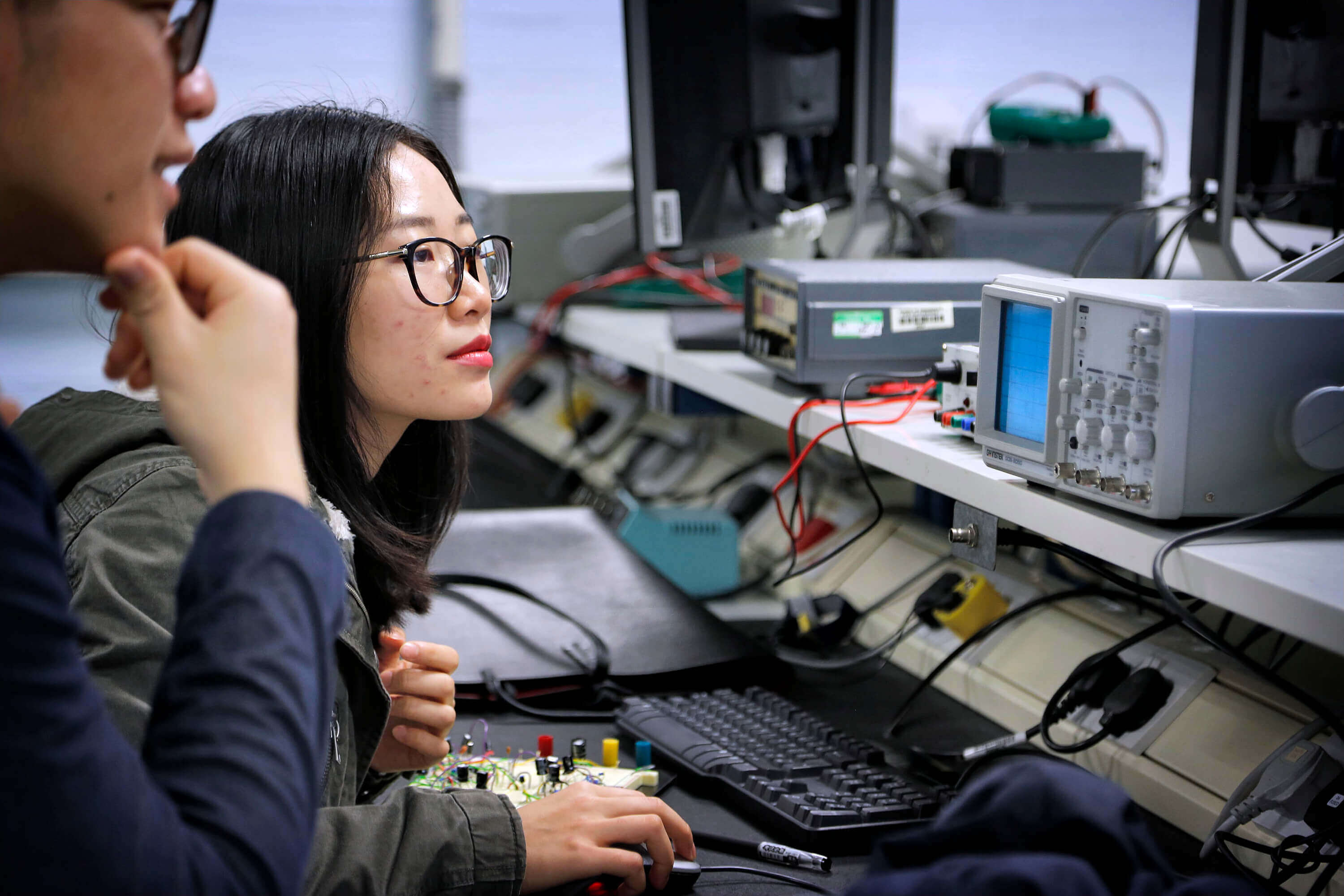Electronics & Communication Engineering
Electronics Engineering is an engineering discipline which utilizes non-linear and active electrical components (such as electron tubes, and semiconductor devices, especially transistors, diodes and integrated circuits) to design electronic circuits, devices and systems. The discipline typically also designs passive electrical components, usually based on printed circuit boards.
The term "electronic engineering" denotes a broad engineering field that covers subfields such as analog electronics, digital electronics, consumer electronics, embedded systems and power electronics. Electronics engineering deals with implementation of applications, principles and algorithms developed within many related fields, for example solid-state physics, radio engineering, telecommunications, control systems, signal processing, systems engineering, computer engineering, instrumentation engineering, electric power control, robotics, and many others.

|
Course |
Duration |
Specialization |
Eligibility |
|
Ph.D. |
2.5-5
Yrs. |
BURET
& PG with 55% in the relevant stream |
|
|
M.Tech.
(Regular) |
3
Yrs. |
VLSI/
Digital
Communication |
B.Tech.
with 55% |
|
M.Tech.
(Part-Time) |
3
Yrs. |
VLSI/
Digital
Communication |
B.Tech.
with 55% |
|
M.Tech.
(Integrated) |
5
Yrs. |
VLSI/
Digital
Communication |
B.Tech.
with 55% |
|
B.Tech. |
4
Yrs. |
|
10+2
in PCM/ PCB with % as per AICTE Norms |
|
Diploma |
3
Yrs. |
|
10th
Pass |








